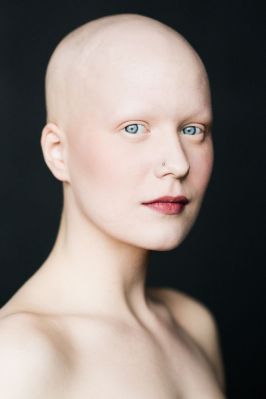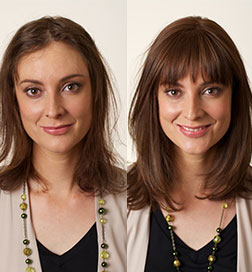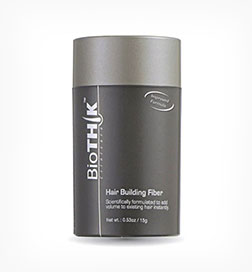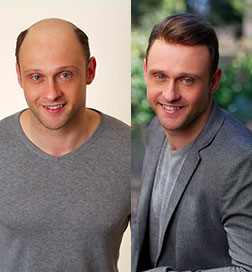
A Study of 90 Patients: Tofacitinib for the Treatment of Severe Alopecia Areata and Variants
Some time ago there was a buzz and excitement in the Alopecian community about exciting results from a new treatment for Alopecia that evidently helped grow hair back completely. The photos of before and after the treatment were astounding. However, number of people treated was extremely small.
Since then there has been wider testing of the drug Tofacitinib and Janu Kinase (JAK) inhibitors, but still only on a small number of people. The recent study of Tofacitinib for the treatment of severe alopecia has yielded some important results. But is this treatment the saviour that the Alopecian community has been hoping for?
Let’s take a look.
Study Summary – New Treatment for Alopecia related Hair Loss
Liu and colleagues conducted an open-label, retrospective study of 90 adults. This group of adults consisted of:
Median age: 34.5 years
55.6% female
Alopecia Areata 14.4%
Alopecia Universalis 83.3%
Alopecia Totalis 2.2%
Note: this trial excluded patients with AA, AU, or AT of greater than 10 years’ duration
Of this initial group, 65 trial-eligible patients received monotherapy with tofacitinib 5 mg twice daily for the first 2-3 months of treatment. After this induction phase, 29% of patients received a higher tofacitinib dose (up to 10 mg orally twice daily), and 28% of patients started adjuvant therapy with pulsed prednisone.
The primary endpoint was the percentage change in the Severity of Alopecia Tool (SALT) score between the first and last visits. Treatment safety was assessed with laboratory studies, examination, and review of systems.
Snapshot of Results for the latest clinical trial for Alopecia
77% of patients achieved a clinical response, after 4-18 months of tofacitinib therapy
58% of patients achieved at least a 50% improvement in SALT scores,
20% showed a complete response (full hair regrowth) after a median of 15 months of treatment.
Patients with Alopecia Areata (AA) (13 people) were better responders than those with Alopecia Totalis (AT) or Alopecia Universalis (AT) (52 people). AA showed 81.9% improvement in SALT scores vs AT or AU 59.0% improvement, respectively
No serious adverse events or laboratory abnormalities were observed after a mean of 1 year of treatment.
The most common adverse events were upper respiratory infections (28.9%), headache (14.4%), and acne (7.8%).
Discussion of Results from Alopecia research study
In this small but statistically significant study, the oral JAK 1/3 inhibitor tofacitinib showed impressive efficacy in the treatment of AA, AT, and AU. Of note, this trial excluded patients with AA, AU, or AT of greater than 10 years’ duration, because prior studies had showed poor tofacitinib efficacy in this group with chronic disease.
One point to be noted is their trial lacked a control group, even though the nature of Alopecia is unpredictable with hair able to grow back without any rhyme or reason, this is important for scientific purposes. Approximately 28% of patients went on to receive adjuvant therapy (i.e. an immunological agent that modifies the effects of other agents) with pulsed corticosteroids during the trial period. There was a low spontaneous relapse rate of 7.7%; however, the duration of treatment ranged from 4 to 18 months (median, 12 months). Hence, we do not know whether tofacitinib therapy can induce long-term disease remission, or whether the disease process will resume after drug cessation. This is a curious point that we look forward to seeing if there is additional testing and the commensurate results.
This study showed tofacitinib efficacy in adult patients, but oral JAK 1/3 inhibitors also shows promise in adolescents with AA, AU, and AT. A small study (13 patients) showed a median change in SALT score of 93% after a mean of 6.5 months of tofacitinib therapy, and topical JAK inhibitors can induce significant hair regrowth in localized AA.[7]
Salient comments about possible new Alopecia treatment
Although tofacitinib therapy was not associated with significant adverse events in this study group, oral JAK inhibitors used to treat rheumatoid arthritis have been associated with significant adverse events, including rare cancers (soft tissue and lymphoma) and serious infections. Whether these risks are unique to patients with rheumatoid arthritis because of comorbidities and concurrent medications, remains to be determined. This is not something to be glossed over. Hair is very important but not at the expense of your overall health and even your life. Certainly this is something to be investigated further.
Although response rates were not as dramatic for AU and AT, the efficacy in these more severe forms of autoimmune alopecia is especially impressive, given the lack of therapeutic alternatives Future studies should adopt a randomized, prospective, placebo-controlled design and include long-term follow-up, both with and without maintenance tofacitinib therapy. Certainly, JAK 1/3 inhibitors, such as tofacitinib, are a promising new treatment for AA, AU, and AT.
According to the National Alopecia Areata Foundation, clinical studies of topical treatments, psychological interventions, and additional JAK inhibitor strategies are under way. Until then, we watch and wait.
If you have Alopecia Universalis or Totalis and are looking for a wonderful solution, we highly recommend the Follea Gripper Wigs. They are simply the most beautiful and natural wigs in the world, there is nothing that compares to them. They have been created for people with AT and AU, we love them we are sure you will too! Take a closer look on our information page about these beautiful hair creations.
For further information please see the original research:
Liu LY, Craiglow BG, Dai F, King BA
J Am Acad Dermatol. 2017;76:22-28
All information given should be considered as general advice and not a medical directive. Please see your doctor or dermatologist for further information.
If you don’t know what to do, get in touch either fill out a contact us form and we will reach out to you as soon as we can, or call us direct on the numbers below.




